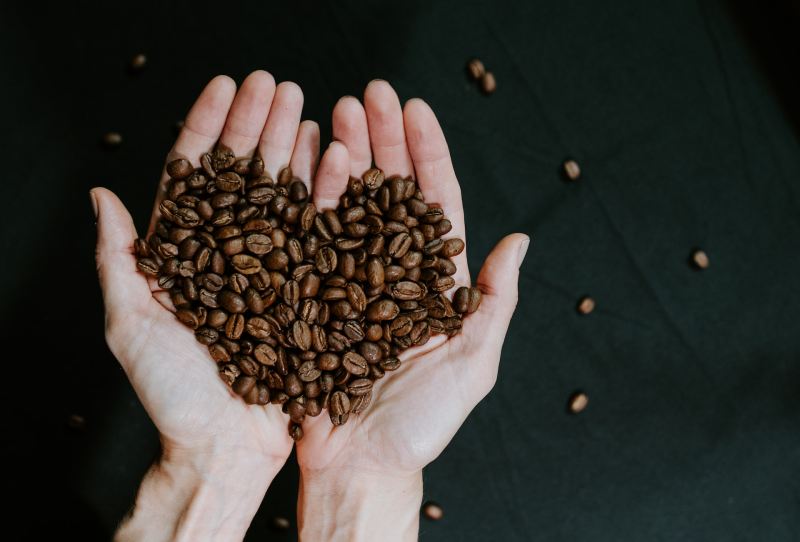Coffee drinkers who use whole bean coffee proclaim it is superior to ground coffee, offering a fresher, more robust flavor. On the other hand, many who strictly use ground coffee tout its ease of use and convenience. I’ve concluded that the debate between whole bean vs. ground coffee will likely never end, as each has a time and use depending on what type of coffee drinker you are.
There are many pros and cons when comparing whole bean vs. ground coffee, making it difficult to pick a true “winner.” Let’s dive in to compare whole bean and ground coffee side by side.
Understanding whole bean and ground coffee

For comparison, it’s important first to clarify what is meant by whole bean vs. ground coffee. All coffee starts as a “coffee cherry” picked from the tree by coffee farmers. From there, the coffee undergoes processing, milling, and roasting stages, ultimately leaving us with “whole bean coffee.” These processes are the same, except for the roasting stage, which differs based on the coffee roast. Roasting beans makes light roast coffee for a shorter time than dark roast coffee, for example.
Whole bean coffee refers to coffee in its post-roasting form. Coffee cannot be brewed directly from its whole bean form. If you purchase a bag of whole bean coffee, you’ll need to grind your beans before using them. Ground coffee differs in that it has already been pre-ground by the company. As such, a bag of ground coffee will be ready to use right out of the bag and doesn’t require any additional steps to grind before use. Both whole bean coffee and ground coffee are widely available in many different roasts.
Whole bean vs. ground coffee

Whole bean vs. ground coffee differs based on a few factors: freshness/flavor, convenience, and price.
Freshness and flavor
For most, flavor and freshness are at the core of the whole bean vs. ground coffee debate. As explained by specialty coffee roaster Volcanica Coffee Company, once coffee beans are ground, “they are exposed to light and air, which quickly affects the flavor of your coffee.” In turn, this can make your coffee taste stale. This phenomenon occurs because once coffee beans are ground, their larger surface area “accelerates oxidation, which leads to stale, flavorless coffee.” As such, many choose whole bean coffee for its fresher, stronger flavor and more potent aroma.
Since ground coffee is exposed to external elements such as heat, moisture, and light, its shelf life is much shorter than that of whole bean coffee. Unsealed ground coffee will only remain fresh for a few days, whereas an opened package of whole bean coffee remains fresh for up to two weeks.
Convenience
There’s no arguing that pre-ground coffee offers a convenience factor that whole bean coffee does not. Pre-ground coffee can be added to your coffee maker simply by scooping it out of the bag. Alternatively, if using whole bean coffee, you’ll need to grind your beans in a few minutes. The time it takes to grind your coffee beans depends on your preferred method. A hand grinder can take 3 or 4 minutes, whereas an electric coffee grinder may only take 1 or 2 minutes. Many coffee makers also have built-in electric grinders, such as the GEVI 10-Cup Grind & Brew maker. If saving time and effort is of utmost concern, pre-ground coffee is better.
Although convenience is essential, many avid coffee drinkers value the customization of their cup of coffee. Using whole bean coffee allows coffee drinkers to grind their coffee to a precise ground of their choosing rather than purchasing a pre-ground bag. As such, whole bean coffee is often a better choice for coffee enthusiasts experimenting with different ways to brew coffee that require different ground sizes.
Price
The pricing of your coffee depends on the brand, yet, in most cases, whole bean coffee is more expensive than ground coffee. This seems almost counterintuitive, as you’d think you would need to pay more for the convenience factor of pre-ground coffee. However, whole bean coffee tends to be of higher quality than ground coffee as they are generally sourced from better-quality crops and don’t contain any fillers or additives.
A cup for every type of coffee drinker

The true “winner” between the two depends on what you want out of your cup of coffee and how many hoops you’re willing to go through to brew an exceptional cup of coffee. For the average coffee drinker, ground coffee is an economical and time-saving choice that yields a good cup of coffee.
Many casual coffee drinkers might not even be able to tell the difference between a cup brewed from whole bean or pre-ground coffee. Conversely, a true coffee enthusiast who wants to bring their daily cup of joe to the next level will likely experience a fresher taste and more potent aroma using whole bean coffee. For me, there’s a place for both whole bean and ground coffee in my pantry.




